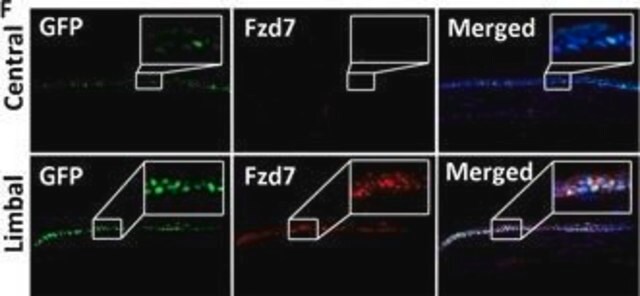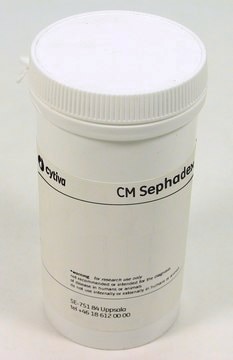S4027
Sulfoxyethyl cellulose Fast Flow
fibers
Synonym(s):
Sulfoxyethyl cellulose
Sign Into View Organizational & Contract Pricing
All Photos(1)
About This Item
Recommended Products
form
fibers
Looking for similar products? Visit Product Comparison Guide
Application
Sulfoxyethyl cellulose is used in protein chromatography, ion exchange chromatography and cation exchange media. Sulfoxyethyl cellulose has been used to purify and characterize a phosphatidylinositol transfer protein from human platelets and to purify an acid DNase (DNase II) from porcine spleen.
Storage Class Code
11 - Combustible Solids
WGK
WGK 3
Flash Point(F)
Not applicable
Flash Point(C)
Not applicable
Personal Protective Equipment
dust mask type N95 (US), Eyeshields, Gloves
Certificates of Analysis (COA)
Search for Certificates of Analysis (COA) by entering the products Lot/Batch Number. Lot and Batch Numbers can be found on a product’s label following the words ‘Lot’ or ‘Batch’.
Already Own This Product?
Find documentation for the products that you have recently purchased in the Document Library.
P Y George et al.
Biochimica et biophysica acta, 836(2), 176-184 (1985-09-11)
We report the purification of a phospholipid transfer protein from human platelets. This protein preferentially transfers phosphatidylinositol, with phosphatidylcholine and phosphatidylglycerol being transferred to a lesser extent. Phosphatidylethanolamine is not transferred. Transfer activity is detected by measuring the transfer of
J Hall et al.
Biochemistry, 28(6), 2568-2571 (1989-03-21)
The reaction of Rhodobacter sphaeroides cytochrome c2 with the Rb. sphaeroides cytochrome bc1 complex was studied by using singly labeled cytochrome c2 derivatives. Cytochrome c2 was treated with chlorodinitrobenzoic acid to modify lysine amino groups to negatively charged carboxydinitrophenyllysines and
X Zeng et al.
Biotechnology progress, 15(6), 1003-1019 (1999-12-10)
As a result of the convective flow of solutes through porous membranes, membrane chromatography has a higher capture efficiency and a higher productivity than column chromatography and shows most promising industrial applications for the recovery, isolation, and purification of proteins
D Wong et al.
Microbial ecology, 47(1), 80-86 (2004-07-21)
Previous studies have shown that sulfate-reduction activity occurs in a heterogeneous manner throughout the terrestrial subsurface. Low-activity regions are often observed in the presence of clay minerals. Here we report that clays inhibit sulfate reduction activity in sediments and in
Dashzeveg Gantulga et al.
Phytochemistry, 70(17-18), 1999-2009 (2009-09-22)
The Arabidopsis genome contains 17 predicted beta-galactosidase genes, all of which belong to glycosyl hydrolase (GH) Family 35. These genes have been further grouped into seven subfamilies based on sequence similarity. The largest of these, subfamily a1, consists of six
Our team of scientists has experience in all areas of research including Life Science, Material Science, Chemical Synthesis, Chromatography, Analytical and many others.
Contact Technical Service





